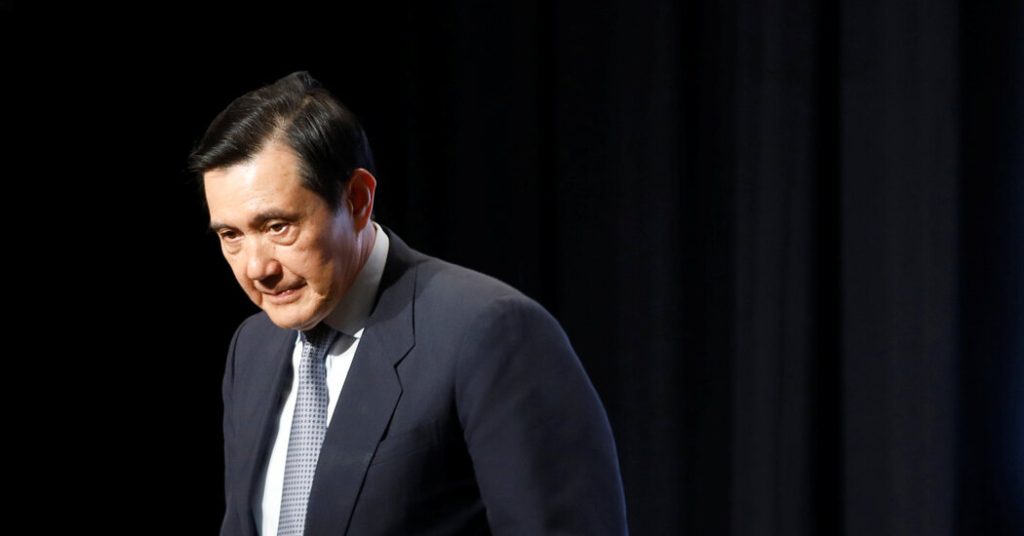Amidst rising tensions between China and Taiwan, former Taiwanese President Ma Ying-jeou is set to embark on an 11-day trip across China. This visit comes at a delicate time as China and Taiwan have been in dispute over two Chinese fishermen who died in an altercation with a Taiwanese coast guard vessel in February. Taiwan anticipates increased military intimidation from China once the island’s new president, Lai Ching-te, takes office on May 20. Lai’s Democratic Progressive Party rejects Beijing’s claim that Taiwan is part of China, which has further strained relations between the two sides.
Despite the friction between China and Taiwan, Ma’s warm reception in China highlights Beijing’s willingness to maintain open communication with politicians who advocate for closer ties with China. Officials from Ma’s Nationalist Party have hinted at a possible meeting between Ma and China’s top leader, Xi Jinping, during the visit. This would echo their groundbreaking talks in 2015. The Chinese government has suspended high-level official contacts with Taiwan since President Tsai Ing-wen took office in 2016, leading to increased tensions between the two sides.
While the incoming Taiwanese President Lai has expressed a willingness to engage in talks with China, his party rejects Beijing’s conditions for official dialogue, particularly the acceptance of “one China.” This poses a challenge for Taiwan-China relations as Beijing views this as a way to assert its sovereignty over Taiwan. Despite the obstacles, some Taiwanese officials argue that maintaining open channels of communication with China, as demonstrated by Ma’s visit, could help reduce tensions and prevent potential conflicts between the two sides.
Ma’s visit to China is also seen as a strategic move in the ongoing political rivalry between the Nationalist Party and Lai’s administration. While Lai won the presidential election with 40% of the vote, the Nationalist Party secured the most seats in the legislative election. Both the Nationalists and Chinese officials argue that Lai’s victory does not represent mainstream Taiwanese opinion, a narrative likely to be highlighted during Ma’s visit. However, Ma’s advocacy for closer ties with China, including the idea of unification under certain conditions, is not universally supported within his own party or among Taiwanese voters.
Despite Ma’s efforts to promote peace and stability in cross-strait relations, critics within Taiwan, including members of the Democratic Progressive Party, accuse him of selling out Taiwanese interests to China. The DPP argues that Beijing’s treatment of Ma is an attempt to set the terms for political discussions that favor China’s agenda. While Ma’s economic initiatives aimed at strengthening ties with China during his presidency were met with mixed reactions in Taiwan, his upcoming trip is viewed as a symbol of the delicate balancing act between maintaining autonomy and engaging with China.
As Ma prepares to lead a group of Taiwanese students on a journey across China, including a possible meeting with Xi Jinping, the implications of this visit for Taiwan-China relations remain uncertain. While the Nationalist Party has expressed support for Ma’s trip, they have also distanced themselves from any controversial statements he might make in China. Ultimately, Ma’s visit serves as a reminder of the complex dynamics at play between Taiwan and China, highlighting the ongoing struggle to navigate the territorial, political, and economic issues that have long defined their relationship.


